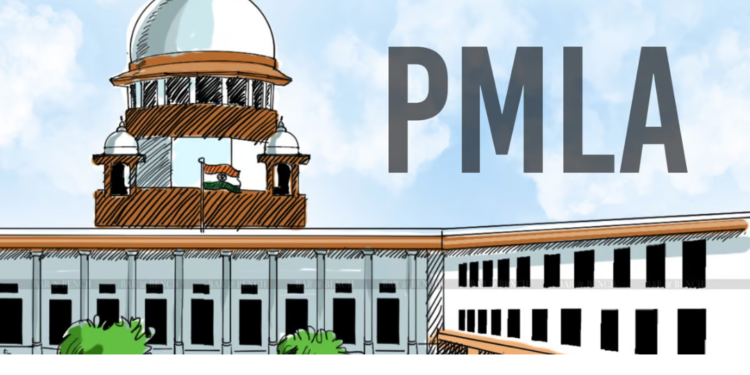The Supreme Court ruled on Thursday that an accused individual who is not arrested by the Enforcement Directorate (ED) during a money laundering probe, but appears before a special court in response to summons issued under the Prevention of Money Laundering Act (PMLA), is not required to satisfy the stringent “twin test” for bail under Section 45 of the PMLA [Tarsem Lal v. Directorate of Enforcement].
Section 45 of the PMLA mandates that the court must allow the Public Prosecutor to oppose the bail application and can grant bail only if convinced that there are reasonable grounds to believe the accused is not guilty and will not commit any offence while on bail.
The Supreme Court clarified that if the accused appears in court by summons, it cannot be considered that they are in custody. Therefore, such individuals are exempt from the twin conditions for bail under the PMLA.
The court further stated that if the ED seeks custody of the accused after they appear in response to summons, the ED must apply to the special court for custody. The court will grant custody only upon satisfying reasons for the need for custodial interrogation.
The verdict was delivered in a case questioning whether an accused in a money laundering case must meet the stringent bail conditions, even if the special court takes cognisance of the offence and issues summons.
The Supreme Court had reserved its judgment on April 30 in this matter, examining whether an accused, not arrested during the investigation under the PMLA, must fulfill stringent bail conditions upon appearing in court following ED complaints and summonses.
The legal issues before the apex court arose from a Punjab and Haryana High Court decision that had denied pre-arrest bail to several accused in a money laundering case related to an alleged land scam involving revenue officials.
In November 2017, the Supreme Court had invalidated Section 45(1) of the PMLA that imposed additional bail conditions on money laundering accused. However, this provision was later reinstated by the Central government through amendments to the PMLA.
The 2017 decision of the Supreme Court was overturned in July 2022 by another Bench of the Court in the case of Vijay Madanlal Choudhary v. Union of India, which attracted strong criticism and led to multiple review applications.
Former Supreme Court judges, including Justice Rohinton Fali Nariman and former Chief Justice of India UU Lalit, criticized the 2022 ruling, emphasizing the presumption of innocence in Indian criminal jurisprudence.
In August 2022, the Supreme Court issued notice to the Central government in a review plea filed by Congress leader Karti Chidambaram challenging the Vijay Madanlal ruling.

















